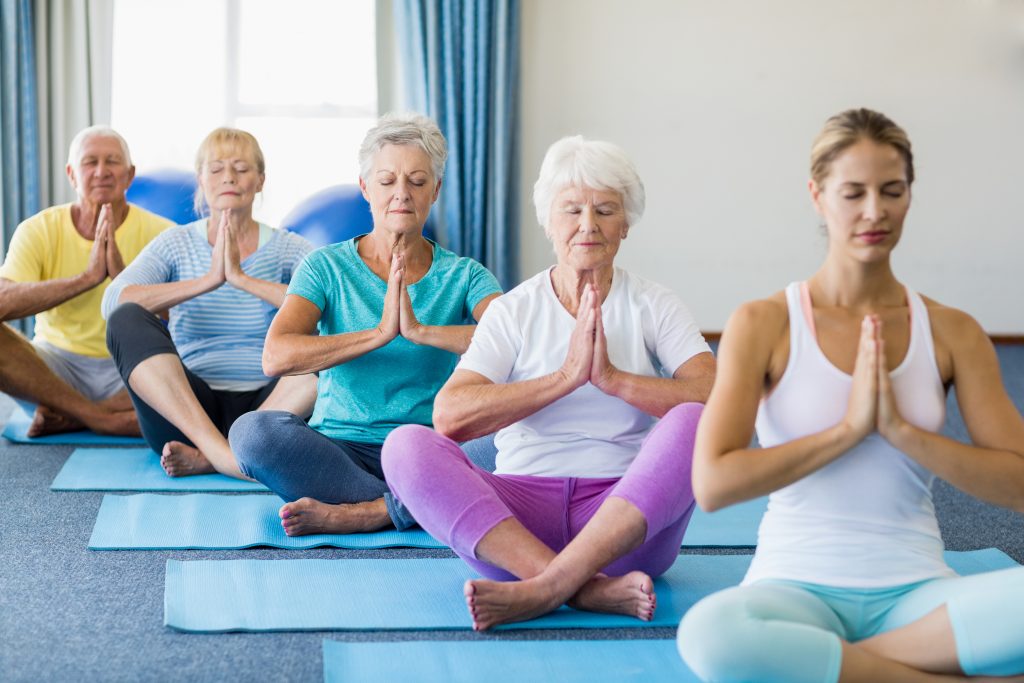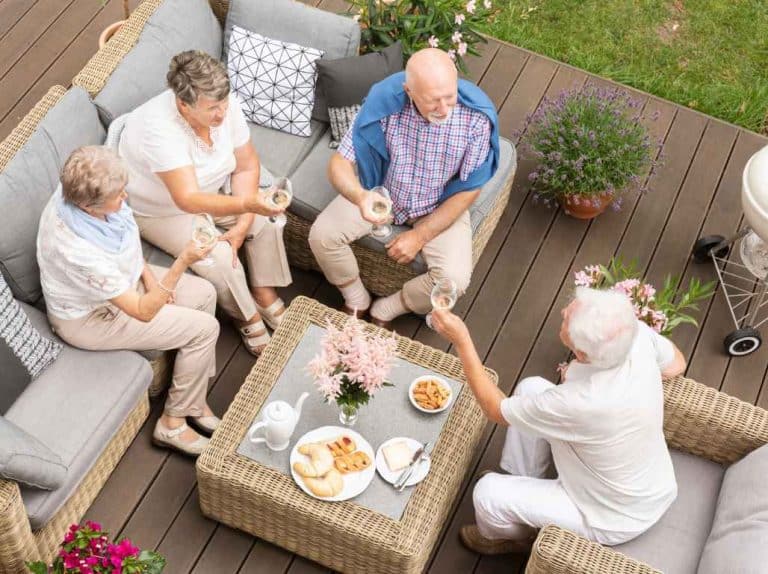Senior Healthcare For A Long And Productive Life Follow These Guidelines
To ensure that seniors are receiving the best possible care, it is important to be aware of five key tips for optimum senior healthcare: regular check-ups, healthy lifestyle habits, medication management, fall prevention strategies, as well as social support networks. With these five tips in mind, seniors can take proactive steps towards maintaining their health and wellbeing into later life with confidence.
1. Regular Check-Ups Are Vital For Senior Healthcare
Regular check-ups are an essential part of maintaining good health for seniors. Annual physical exams allow doctors to monitor existing conditions and identify potential problems before they become serious. It is imperative for elderly individuals to inquire about their ailments and the available aid during these visits with a medical professional.
When it comes to annual physicals, age and gender can play a role in what screenings are recommended. For example, women over 50 should have regular mammograms, whereas men may need more frequent prostate cancer screenings as they get older. Other common tests that may be recommended include blood pressure checks, cholesterol tests, diabetes screening tests, vision exams, hearing evaluations and even mental health assessments depending on the individual’s needs.
Periodic examinations are a must for elderly individuals to stay in good health and condition. For seniors to maximize their health and well-being, it is important for them to lead a healthy lifestyle that includes regular physical activity and balanced nutrition.
2. Healthy Lifestyle For Senior Healthcare
Living a healthy life is essential for elderly individuals to sustain well-being and ward off issues as they get older. Engaging in physical activity on a regular basis can help minimize the chances of developing conditions like heart disease, cancer, osteoporosis and premature aging. Seniors should aim to do 150-300 minutes of moderate-intensity exercise or 75-150 minutes of vigorous intensity activities each week. Strolling for a minimum of half an hour daily can help increase suppleness and the scope of motion in knee and hip joints. Eating nutrient-dense foods on a regular basis along with exercising regularly helps mitigate risks associated with aging.

For seniors, exercise can be tailored to their individual needs and abilities with low-impact activities such as walking, swimming or yoga, as well as strength training for bone density maintenance. Low impact exercises like walking, swimming or yoga are great choices because they don’t put too much strain on the body while still providing beneficial results. Strength training is also important for maintaining bone density as we age; this can include weight lifting or resistance band exercises done at home or in a gym setting with guidance from a healthcare provider if needed. It’s important to remember that even small amounts of physical activity add up over time.
To promote long-term health and wellbeing, seniors should focus on consuming a nutritious diet of whole grains, fresh produce, and minimal processed foods high in saturated fats. Consuming omega-3 fatty acids through fish oil supplements may provide seniors with cognitive benefits, thus making wise food choices is beneficial for long-term health. Therefore, making smart choices when it comes to food selection will pay dividends down the road.
3. Medication Management Is Essential For Senior Healthcare
Medication management is an important part of senior healthcare. Maintaining a comprehensive record of all medications, including non-prescription drugs like vitamins and supplements, is integral to successful medication management for seniors. Keeping a list up to date allows physicians to know exactly what has been taken prior to prescribing new medications, which can help prevent serious complications such as falls or hospitalizations.
The significance of communication between elderly patients and their medical professionals or pharmacists cannot be overstated when it comes to managing medications. Regular checkups should include discussions about any changes in the patient’s health that could affect the efficacy of certain medications, as well as any side effects they may be experiencing from taking them. Additionally, seniors should keep their doctors informed if they are taking any other medications or supplements that could interact with those prescribed by the doctor.

Caregivers and family members can also lend a helping hand when it comes to ensuring seniors manage their medications correctly. They can set up pill boxes or reminders for prescriptions, so that the doses are taken on time and in the right amount each day; this will ensure no adverse reactions from missed pills or accidental double dosing due to gaps between doses. Additionally, caregivers should review prescription labels with seniors before picking up refills at the pharmacy, to guarantee accuracy and avoid any misunderstandings about dosage instructions for multiple medicines being taken simultaneously.
Finally, having regular conversations about how different medications make them feel helps encourage better adherence among older adults who may not always remember why they need certain drugs, even though they understand the importance of taking them correctly every day. This type of dialogue between caregivers/family members and patients promotes understanding while reinforcing positive behaviors associated with managing one’s own health responsibly; something we should all strive towards regardless of age.
4. Fall Prevention Is Essential For Senior Healthcare
By taking proactive measures to reduce the risk of falling, such as clearing clutter from floors and installing grab bars in bathroom areas, wearing suitable footwear around the house, abstaining from risky activities like climbing ladders or standing on chairs without support when reaching for objects overhead, using mobility aids (e.g., walkers) correctly, etc., one can significantly enhance their chances of living independently for a longer duration while reducing potential pain and injury associated with falls.
To reduce the risk of falls, handrails should be installed along staircases and hallways to provide extra stability when navigating through doorways/hallways; non-slip mats should be placed in bathrooms near tubs/showers; carpets must have secure backing to prevent slipping; furniture should be relocated away from pathways used by seniors so as not to create trip hazards within homes; and loose rugs can easily be secured with double sided tape.
5. Social Support
Joining a community group is an excellent way for seniors to stay connected with their peers and benefit from social interaction. Loneliness can have a detrimental effect on health, particularly in elderly individuals; thus, engaging with community groups is an effective way to combat this and remain connected. Participating in activities such as classes, clubs, or volunteer opportunities can provide emotional support during challenging times like illness or recovery periods.
Community groups offer many advantages for older adults. Making connections with like-minded peers who can relate to one another is a key benefit of joining community groups for seniors. Joining a club allows seniors to explore different hobbies or learn something new while staying engaged intellectually and physically. Being a part of a club can provide elderly people with access to activities that may have been previously inaccessible due to mobility or transportation issues.
When selecting an appropriate community group activity, consider your loved one’s individual needs such as medical conditions, mobility level, and energy level. For example, some programs may require more physical exertion than others so it is important to find something tailored towards senior citizens that won’t cause undue strain on their body. Also, look into whether special accommodations can be made based on disability status if necessary. Finally, remember that no matter what age you are – everyone deserves quality time spent amongst friends.
Conclusion
It is essential for seniors to prioritize their healthcare needs and follow the five tips outlined above in order to achieve optimum health. Regular check-ups, a healthy lifestyle, medication management, fall prevention strategies and social support are all important components of senior care that should not be overlooked. By following these 5 tips for optimum senior healthcare today, you can ensure your future wellbeing tomorrow.
More Articles To Read About Seniors
Does Medicare Plan G Cover Emergency Room Visits
Medicare Insurance Costs Explained
6 Benefits of an Aging Population
Senior Mental Health Crises: How Can We Help?
7 Ways To Comfort Seniors And The Elderly
Home Care Abuse: 7 Ways To Protect Your Senior
Why Home Healthcare Is Rising In Popularity





















